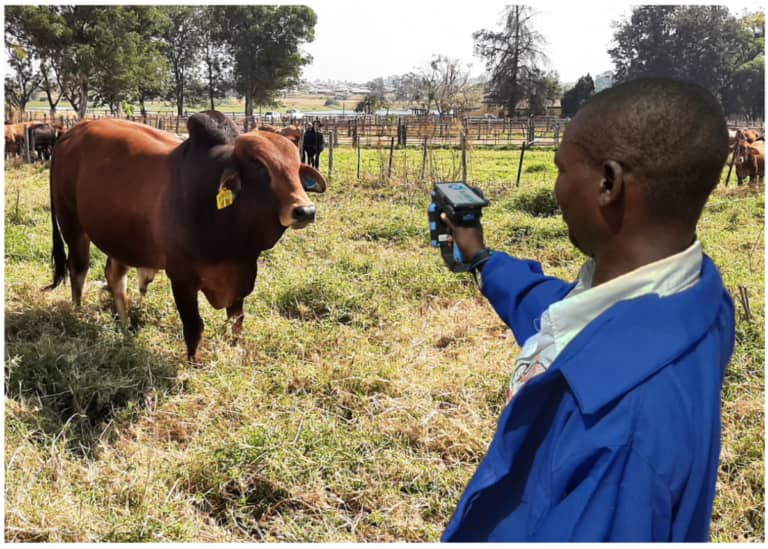● Zimbabwe is the first African country to see the roll out of E-Livestock Global’s traceability system powered by Mastercard’s Blockchain-based Provenance solution, bringing end-to-end visibility to the cattle supply chain
● Innovative solution brings new hope for farmers, while helping Zimbabwe regain its lucrative beef export market to support economic recovery
E-Livestock Global today launched a first-of-its kind solution powered by Mastercard’s blockchain-based Provenance solution, empowering Zimbabwean farmers to prove the origin and health records of their cattle, while reducing risks to buyers.
A first in the Middle East and Africa, the solution brings new hope to the country’s agricultural sector after an outbreak of tick-borne disease in 2018 led to the death of 50,000 cattle. The lack of a traceability system has seen Zimbabwe unable to export beef to lucrative markets in Europe and the Middle East in recent years, reducing export earnings from beef, which are important to the country’s economy.

The E-Livestock Global solution brings end-to-end visibility to the cattle supply chain. Commercial farmers and dipping officers tag each head of cattle with a unique, ultra-high frequency RFID tag – as mandated by the Ministry of Agriculture – and register it and its owner onto the solution. Each time the animal gets dipped, vaccinated or receives medical treatment, the tag records the event onto the traceability system.
Leveraging Mastercard’s award-winning Provenance solution, E-Livestock Global records these events to maintain a secure and tamper-proof trail of each animal’s history. This, in turn, supports the entire supply chain with trusted, transparent and verifiable data. For farmers, it provides an irrefutable record that proves ownership, supports sales and exports, as well as allows them to obtain a loan, using their cattle as collateral. For buyers, it enables them to efficiently manage their operations and guarantee product quality to their customers.
“Mastercard’s Provenance solution can safely and securely track the authenticity of the cattle’s journey at every stage, from birth to sale. Tracking the medical history of cattle on a tamper-proof blockchain ledger will foster renewed trust in Zimbabwean cattle farming and re-establish Zimbabwe’s credibility as an international beef exporter. It will also open up new opportunities for farmers – especially small farmers who were impacted the most by the 2018 outbreak. Ultimately, this will drive trust for multiple stakeholders by combining industry expertise with data privacy,” said Max Makuvise, Founder and President of E-Livestock Global.

The Mastercard Provenance Solution leverages the power of blockchain to deliver real-time traceability that bridges the gap between data silos, allowing for decisions to be made based on a shared record that drives trust and accountability between supply chain parties. Both industry and data agnostic, the solution helps provide a clear record of traceability designed to contribute to customer confidence, trust and awareness.
“Building trust in industries is essential for a functioning and reliable value chain. At Mastercard, we believe that seamless supply chain transparency can help convey authenticity, expand inclusion, share sustainability practices and improve back-office efficiencies. Our globally-scaled technology and established network capabilities are advancing this process, enabling smarter buying decisions and inclusion of all players, whatever their size,” said Mark Elliott, Division President of Mastercard, Southern Africa.
Mastercard continues to bring more transparency and traceability to food systems and has already integrated its blockchain provenance solution with other companies that enable food supply chains around the world. This is further enhancing the supply chains for Australian avocados and Californian shrimp, and commodities like coffee and grains in the Americas.

The payments technology giant consistently ranks as one of the top blockchain patent filers in the financial services industry with 106 approved blockchain patents and 278 pending applications – many of which directed to technologies that support digital currencies.
Distributed by African Media Agency (AMA) on behalf of Mastercard.
